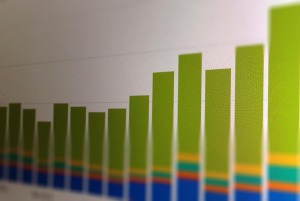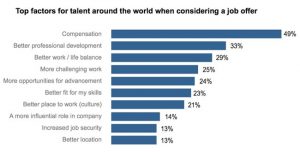As a marketing strategist and data analyst, I have provided web business consulting for a few companies, and one of the most common questions asked is:
“How do Google rankings work?”
or
“How do I make my website appear in the first page of search engines without having to pay the high price for sponsored links (AdWords)?”
Strategies for ranking your website on Google make up what we call “SEO”, short for Search Engine Optimization, which we will discuss in details shortly. However, before we continue, it is important that you understand SEO is divided into two main parts: On-Page SEO, which is related to the internal portion of the website; and Off-Page SEO (external to the site). Now that we got this out of the way, let’s keep on scrolling!
How Can On-page SEO Help You Rank on Google?
On-Page SEO basically consists of factors internal to the site, including website appearance, link structure, and the formatting of your content. There are numerous factors that need to be taken into account for a good On-Page SEO strategy, but the most critical ones are:
- Page Title: This is the title of your page that appears at the top of your browser window. Page title is this name that will appear in the results of a Google search (in blue) and that links to your website. It is important to have a well-written title that clearly and neatly describes the content of each page, containing the keywords in which you want to rank as well. Make sure that the headlines are different on each page within your website, and contain between 60-70 characters so that Google does not penalize it.
- SEO-Friendly URLs: Alongside the page title, SEO-friendly URL is an extremely important factor in SEO On-Page. SEO-friendly URLs usually contain some of the words of the page title. For example, if you are going to set up a blog about digital marketing, having the domain www.marketingdigitalblog.com.br would be excellent!
- HTML Code Structure: This may be the most technical and challenging to verify. Your website and page content information needs to be structured correctly, using the H1 through H6 tags to highlight the titles and subheadings of the page. On the Administrators website, for example, the title of the article (which should not be confused with the page’s title, though they are the same) is inside an H1 tag, a great factor of relevance to Google.
- Quality content with good keyword density (KDI): Today, having quality content is one of the most (if not the most) important factor you need to worry about. Haven’t you heard? Content is King! Focus on unprecedented and quality content, using the keywords that you intend to rank for in your texts – but do not overdo it! Also, be careful when the main page of your website can be accessed from by different URLs that have somewhat similar parameters. In this case, using a canonical tag to prevent Google and other search engines from crawling and recognizing them as duplicate content is your best bet. Overall, my best advice would be: Study SEO writing techniques, they will make all the difference!
- Internal links: Once you’ve written original and quality content, link to the top keywords by linking to other pages on your site. Make sure the linked page contains content related to the keyword.
- Meta tag description: Meta tag description is the little text that appears below the website URL in the search engine results page (SERP). Use it as a “call to action” for users who find your website by focusing on a “catchy” phrase that attracts visitors’ attention and instigates them to click on your link. However, it’s important that the description doesn’t go over 160-170 characters, as it is the “maximum number” that Google indexes in its database.
Will Off-page SEO Help My Website Rank on Google?
As previously said, Off-Page SEO consists of factors external to the page. The main ones are:
- The amount of External Links: Getting external links to link back to your website is essential. At first, it may sound like a good idea for you to register them in directories or even make comments on blogs linking back to your website. Soon you will realize you need quality over quantity, which is what we talk about next. However, reaching out to different blogs and generating a few links is a good way to kick start this strategy.
- Quality of External Links: Hear me out on this: You are better off getting a quality link on a site directly linked to your business than 100 links on bad sites with no direct link to your content. A good start is to find portals and reference blogs in your area. Refer to the item above, but focus on quality.
- Link Anchor Text: Have you found a great site that is worth linking back to your website? When requesting the backlink, ask that it be done over the keywords that you want to rank well. For example, if you have a website that offers Digital Marketing, insert a link above the word “digital marketing”. However, if you want to be more specific, begin targeting regionally/locally. For example, if your digital marketing agency is in the city of Fort Lauderdale, you can place the link above the term “digital marketing agency in Fort Lauderdale”. This way, it will help rank your website when a user types those terms into Google.
- Domain Authority: Developed by Moz, Domain Authority (DA) is a score index that helps foresee a website ranking performance on search engine result pages (SERP). Scores range from one to 100, with higher scores corresponding to a greater ranking performance. Generally, brand new websites will usually start with a DA score of one, while websites with a very large number of high-quality inbound links, or external links are at the top of the scale.
These are today’s tips for you to start you SEO strategy on your website. Now that you know how to make your website appear on the first page of search engines, as well as understand how Google rankings work… Let’s optimize!
Digital & Social Articles on Business 2 Community(81)
Report Post








